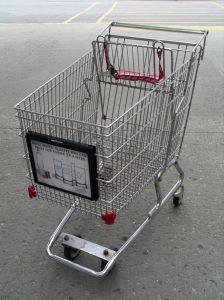Businesses inviting members of the public have a duty to exercise ordinary care in ensuring the safety of those invitees. That means maintaining the property in a reasonably safe condition and warning patrons if there are any unsafe conditions present.

Defense in a recent trip-and-fall premises liability lawsuit argued a defect in a doorway that reportedly caused a patron to trip was not unreasonably dangerous, and further pointed to a so-called “categorical exemption” regarding entryway thresholds under state law.
Our Fort Lauderdale premises liability lawyers understand that while the trial court granted the defense a summary judgment on this basis, that ruling was recently reversed by the U.S. Court of Appeals for the Fifth Circuit.
In its reversal, the court indicated the categorical exemption wasn’t applicable here because of the sudden and unexpected changes that occurred at this entryway, as opposed to “fixed” hazards noted in previous cases. In the end, it came down to some very case-specific facts, which prompted the court to send this case back for trial.
The case of Cox, et al. v. Wal-Mart Stores, Inc. first began in April 2011, when a husband-and-wife walked into a retail store. While crossing the threshold of the automatic door, the wife fell and sustained injuries.
While she was not aware of this until later, a man who had been sitting on a bench near the entrance for roughly a half hour before the fall suspected something like this was going to occur. As he watched people come and go, he saw the automatic door threshold “rocking,” rising anywhere from three-eighths of an inch to half an inch every time customers or carts crossed. He would later say it seemed as if the plate wasn’t secured tightly enough to the ground, and there were potentially some loose screws. As he watched the plaintiff enter, she stepped onto the metal plate, which caused the other side to rise up. This caught her other foot, and she fell.
This testimony was disputed by the store’s assistant manager, who insisted the threshold did not rock or move.
A personal injury claim was later filed against the store. A district court accepted as a matter of fact that the doorway was defective. However, it was determined that the defect was not unreasonably dangerous as a matter of law, citing an earlier decision that indicated doorway thresholds are among those dangers that are usual, and that customers might normally expect to encounter on a business premises. Others might include curbs and steps. Therefore, the defense was granted summary judgment.
Upon appeal, it was noted that previous case law established that a raised threshold was not an unreasonably dangerous condition. However, the difference here was the way in which the threshold reportedly raised unexpectedly each time a customer passed. This was not a condition of the property that was “permanent, known, in place and obvious,” as the court noted. Therefore, the summary judgment was reversed and the case remanded for trial.
Defendants have become skilled in arguing against these claims. Having an experienced injury lawyer on your side to counter their efforts is critical.
Call Fort Lauderdale Injury Attorney Richard Ansara at (954) 761-4011. Serving Broward, Miami-Dade and Palm Beach counties.
Additional Resources:
Cox, et al. v. Wal-Mart Stores, Inc., June 10, 2014, U.S. Court of Appeals for the Fifth Circuit
More Blog Entries:
Valdez v. Mendez et al – Florida Boating Accident Lawsuit Filed, June 12, 2014, Fort Lauderdale Personal Injury Lawyer Blog
 Broward Injury Lawyer Blog
Broward Injury Lawyer Blog



